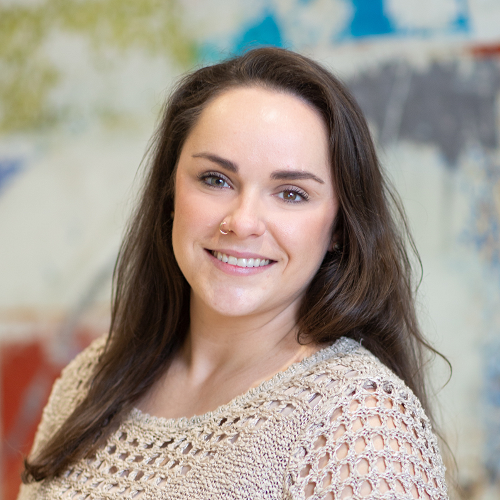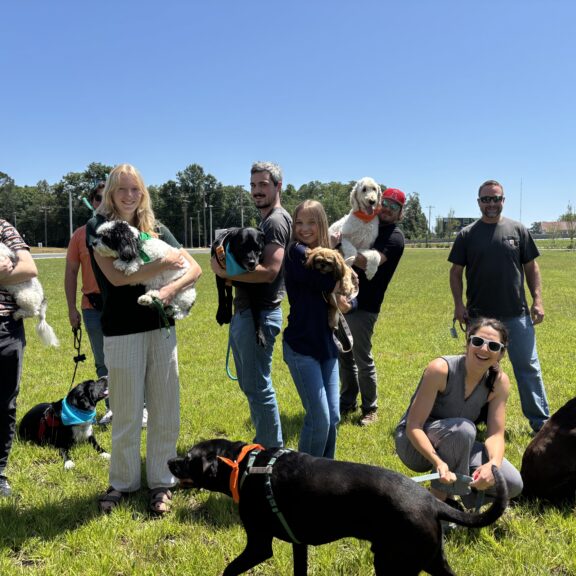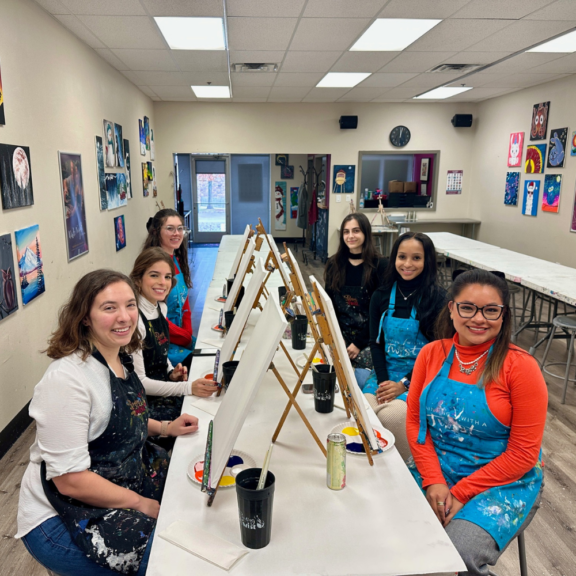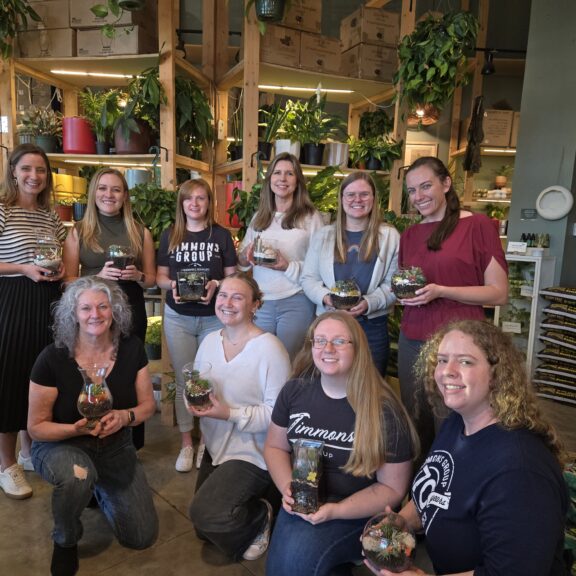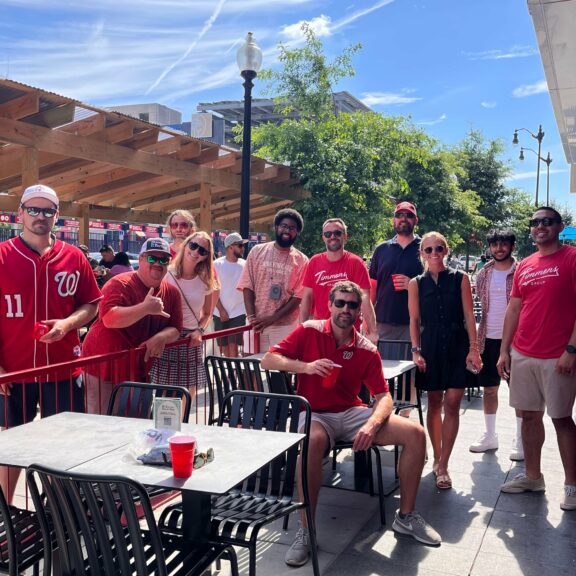Friday, February 19, 2021 in celebration of Black History Month
On Wednesday, February 10, I sat down with two Timmons Group employees, Marcus Miller and Ken Roberson, to discuss Black History Month. Marcus is a Visualization Technician in the Landscape Architecture practice in Richmond and has been with the firm for a year and a half. Ken is a Survey Technician in the Field Operation practice in Richmond and has been with the firm for two and a half years.
Lillian: Thank you guys so much for meeting with me today. Let’s start with an easy introduction. How did you end up in the A/E/C industry?
Marcus: My passion growing up was always architecture, but it’s slowly evolved. I also love technology, computers, and motion graphics so I kind of naturally gravitated from architecture towards renderings and animation. Timmons is a slight departure from what I used to do. Before I came here, I had worked pretty exclusively with buildings but now I’m focusing on everything around the buildings so my focus has changed.
Ken: In high school I had my mind set on civil engineering. Over time you’re exposed to everything, and survey popped into my head because it involves a lot of technical processes and mapping, which is something that I have a huge interest in. I also really like history. I work with plans from the 1800s sometimes and it’s really interesting to see how things progress over time. I could honestly look at maps all day, it’s kind of like a nerd-out moment for me.

Lillian: Wow, so you both have been set on this industry for some time. I think Ken’s last comment is a great segue into why we’re sitting down today, which is to discuss Black History Month. Ken, you said you think it’s interesting to see how things progress over history. Do you think your interest applies to race and identity too?
Ken: Absolutely, it’s thought-provoking. Obviously, it’s just part of our history that certain people couldn’t own property or just weren’t allowed to progress as quickly. Sometimes I’ll see notes in subdivision plats like ‘none of these lots are allowed to be sold to anyone of African descent.’ I come across them and it reminds me that I’m doing something that none of my ancestors would have even owned the land that was surveyed. And it’s motivating because I’m breaking barriers of past mindsets and setting a different path for people coming behind me. At Timmons, I find myself in a place where I can access the resources I need to progress in my career and maybe get my license and keep moving up in the company.
Lillian: That’s really interesting about the notes on the old subdivision plans. Did you think about those sorts of connections when you were in high school and considering a career in civil engineering?
Ken: Not at all. In history class you learn about discrimination and setbacks that were put on minorities, but I didn’t have the foresight to think that I’d be introduced to these historical race issues that had such an incredible impact on how our community was held back for so long.
Lillian: Marcus, do you come across similar encounters that have motivated you in your line of work as a visualization professional?
Marcus: Not quite the same experiences as Ken’s. The thing that comes to mind for me is owning a business for 7 years. It’s such a computer-based industry that people never really saw my face because I’d have clients in Florida and Richmond, and we didn’t meet via Zoom. So, when they chose my work, they were picking it because of the quality of my work. I’m just as capable as any other person, and that’s what I like about Timmons Group is that they liked the quality of my work and they gave me an opportunity. I feel like the other firms I’ve worked for have done the same.
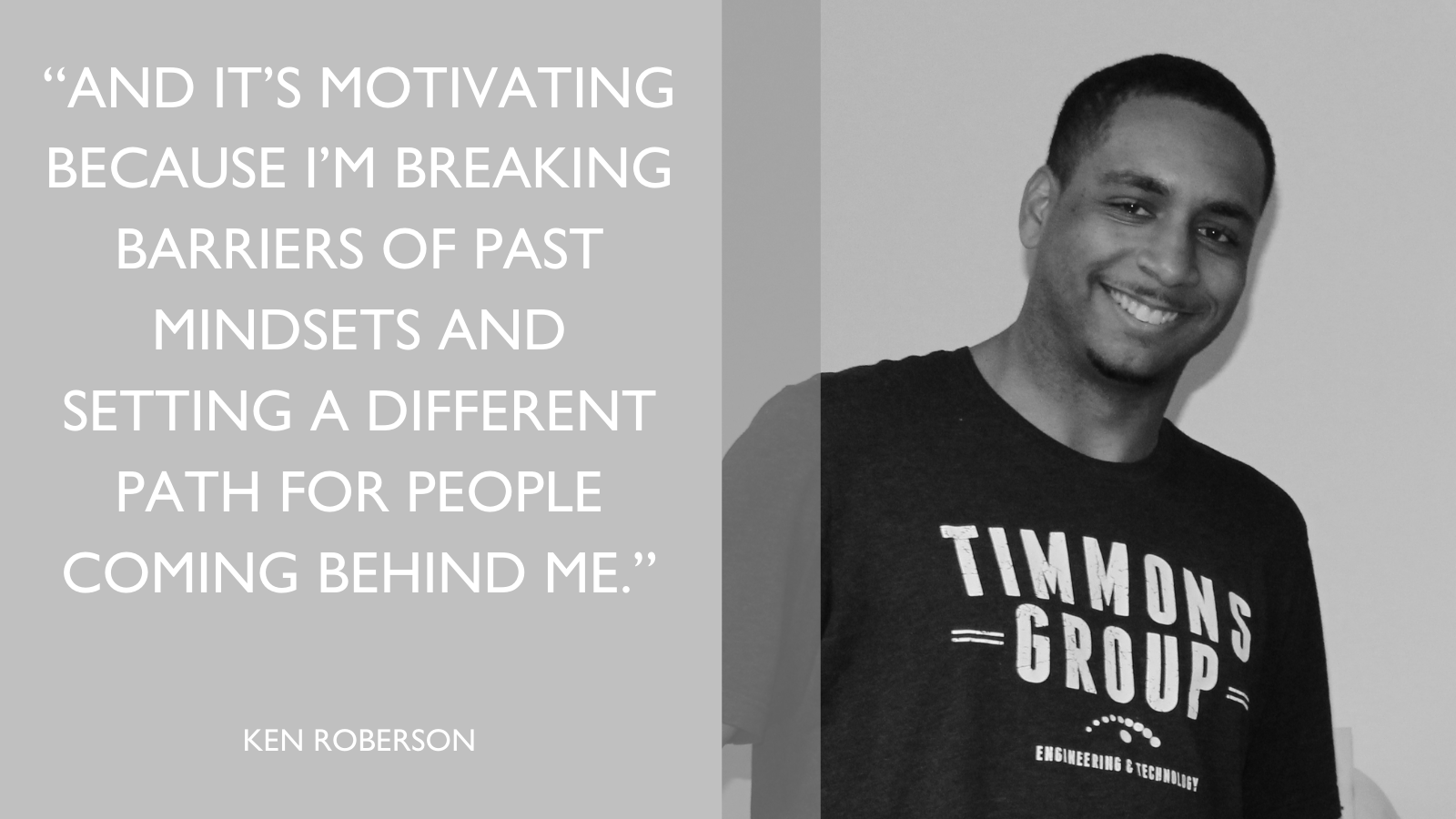
Lillian: Marcus, given that you’ve worked with other firms in addition to Timmons Group, do you think the A/E/C industry as a whole has provided opportunities for Black people and have embraced talking about history, culture, and stories of Black people?
Marcus: To a certain degree, yes. But, like every other industry we have a lot of work to do still. I like that Black History Month gives us the opportunity to help us tell our stories unlike before, but I’d still like to see that opportunity for everyone across the board.
Ken: I agree with Marcus. I don’t want to be put in a position because I’m a minority. I’d rather earn it just like everyone else. In the A/E/C industry we want to diversify our groups, but we don’t want to force it, we want it to be organic. And I think the more we open our doors to people with different backgrounds the more opportunities for insight and new perspectives we’ll have. And that’s true of any department here at Timmons, not just Survey.
Lillian: What do you both think about Timmons Group’s DEI (diversity, equity, and inclusion) initiatives?
Ken: I think it’s necessary. We won’t achieve diversity if we’re stagnant. We want to have a diverse company makeup and be appealing, and that goes beyond Black History Month. I think Timmons Group’s leadership has listened to people here, the community, and clients and I think this is a step in the right direction.

Lillian: You both said you prefer people to decide based on your work what they think of your professionalism and caliber without special recognition. Do you think there’s a balance to celebrating Black individuals in the workplace and celebrating Black History Month? How do you feel that might translate to celebratory months for other minorities like Asian and Pacific American History Month or Latinx History Month?
Ken: Good question.
Marcus: Yeah. (chuckles)
Ken: I think, like you said, that’s why we have celebratory months. I also think once you get people on the same page we can acknowledge the downfalls of the past and we can agree to reflect and work towards a new standard that includes everybody.
Marcus: I think a good balance is the Monday Morning Kudos at Timmons. (Every Monday, our staff receives an compiled email that celebrates employee accomplishments and kudos from clients) I’m still new here so I don’t know the face of every person. When we get that email, I’m celebrating someone for their kudos and accomplishments at the firm. I think that’s a great example of balance because I don’t see their faces and I’m excited for their recognition regardless of their race. I think when you put Black people’s accomplishments in the forefront of Black History Month, we’re all focusing on Black people because it’s who we’re celebrating at the moment. I’m not really fond of labels though, but I know we all have different opinions.
Lillian: I agree, Marcus. I think the conversation we’re having is really important because everyone feels so differently about Black History Month and Black culture, so it’s necessary to share multiple opinions.
Ken: I also think a way to find balance is to get involved in the company itself. I’ve made that more of a goal for myself lately. For example, for the 12 days of Christmas (12 days of gifts provided to Timmons Group employees from our #HRSuperstars) [my supervisor] Dwayne and I handed out gaiters, so through that I’ve stepped up to make myself more personable and involved at Timmons. You may have to personalize Black History Month to get people on board.
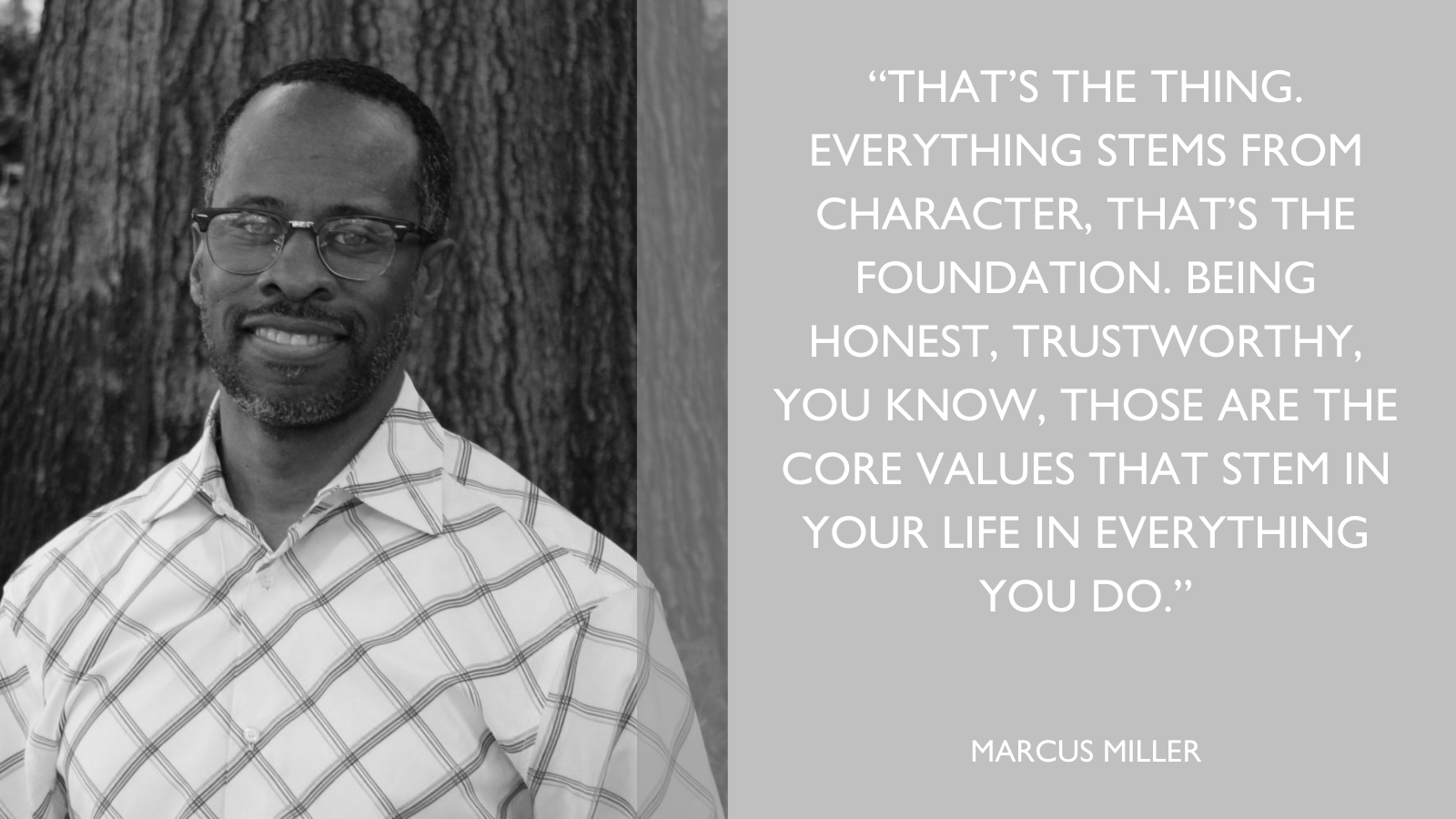
Lillian: Talking about putting yourself out there, there are lots of Black historical figures that have really put themselves out there. Do any particular stories of Black groups or individuals resonate with you?
Ken: My mother, for sure. She’s a Black nurse at VCU. Both of my parents are from New York, so they’ve always had that ‘go get it’ attitude. Growing up in Richmond I was shy as a kid, so my parents really pushed me to the boundaries of putting myself out there. But as far as notable figures, there are so many of them. I’m kind of a history buff, and in school you’re taught Coretta Scott King, Martin Luther King, Jr., Malcom X, Barack Obama, you know? But more recently I’ve gone back and looked at some other influences for myself. There are hundreds, thousands of people that I’ve never heard of that have laid the foundation for us moving forward that don’t have their own textbook. At the end of my life I will probably not have a day named after me, but I still pride myself because I’m opening the door for other Black people, so I hold myself to that standard.
Marcus: There is no one person, for me, like Ken said there are so many historical influences to keep in mind. But I do take away a lot from quotes and the way that people lived their lives. In being a dad, I just want to be the example for the next generation that’s coming up behind me. My favorite quote is MLK’s [“I have a dream that my four little children will one day live in a nation where they will not be] judged by the color of their skin but by the content of their character.” So, for me, exemplifying good character is the most important thing. Good character leaves a significant impression of what others think of us.
Lillian: You’re both very character driven. Along with character, is there another positive attribute you would suggest for younger people to focus on while building themselves and their career paths?
Marcus: That’s the thing. Everything stems from character, that’s the foundation. Being honest, trustworthy, you know, those are the core values that stem in your life in everything you do.
Ken: You know, I grew up in Boy Scouts, I’m an Eagle Scout. So, I’ve always preached being loyal, helpful, trustworthy, and I add accountability to that too. I like to be responsible and dependable for people in my life. I would suggest for young people to be confident in what you want to do. That there are going to be times when you feel uneasy with what you’re doing, and you just need to ask questions.
Marcus: Right, like, be committed, but also don’t be afraid to make mistakes and be uncomfortable.
Ken: And nothing is ever perfect. I learn the most from when I make mistakes and I have the motivation to improve myself.

Lillian: I appreciate when we have conversations like this at Timmons Group… Like, how did we end up with so many good people and fit them all into one building? We all do such different things, but somehow, we manage to share all these characteristics, and that really is the ‘Timmons Group’ person.
Marcus: One of my favorite things about Timmons Group is the culture and synergy.
Lillian: It sounds like you both have taken precise time and measure into being sustainable citizens and examples for people around you. This is an ongoing conversation, but I’m so glad we were able to discuss some more specific opinions and stories together right now.
Ken: I’m glad you were able to provide the space for us to openly discuss this topic. It isn’t always the most pleasant discussion when reflecting on the past, but I know [we] will be able to use our discussion to deliver a positive and hopeful message of unity and progression.
